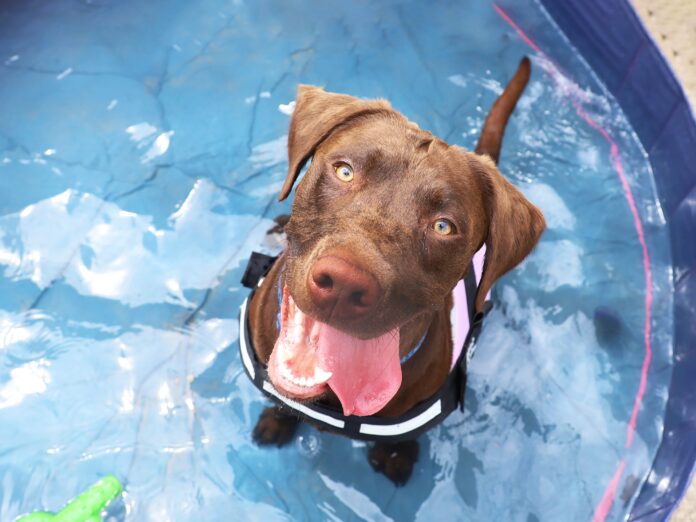With the arrival of warmer weather, Dogs Trust has issued guidance that exercising dogs in temperatures as mild as 21 degrees centigrade can be problematic for dogs, particularly brachycephalic, or “flat-faced”, breeds such as English Bulldogs, Pugs and French Bulldogs.
In fact, according to recent research from the Royal Veterinary College (RVC) in collaboration with Nottingham Trent University, English Bulldogs are fourteen times more likely to suffer heat-related illness compared to Labrador Retrievers. Over a third of owners of flat-faced dogs reported that heat regulation is a problem for their pet.
While most dog lovers will be aware that extreme weather and heatwaves can be dangerous – sometimes even deadly – for dogs, many will be unaware that exercising dogs in early summer temperatures as low as 21 degrees can cause heatstroke in dogs. In some cases, heatstroke can prove fatal.
The symptoms of heatstroke can include panting heavily, drooling excessively, appearing lethargic, drowsy or uncoordinated, vomiting, diarrhoea, and collapsing.
Paula Boyden, Veterinary Director of Dogs Trust, says:
“It’s great to see the sun shining; it feels like summer has finally arrived. But while this weather might be great for us, hot weather can cause problems for our canine friends.
“Most of us know not to walk or exercise dogs in extreme weathers, but even temperatures as mild as 21 degrees can cause problems, especially for those dogs with flat-faces or underlying health conditions.”
“There are so many things we can do to make sure our dogs stay happy and healthy in hot weather, but it is crucial we keep a close eye on them, even if we are playing indoors. That way, hopefully we and our dogs will be able to enjoy a long hot summer.”
Dogs Trust has issued the following advice to support dog owners this summer:
· Avoid walking or doing activities either indoors or outdoors with your dog at the hottest times of the day, so early morning or later in the evening is often best.
· Always take plenty of water with you when out with your dog and make sure they have access to fresh water at home at all times.
· Tarmac can get very hot in the sun – check it with your hand before letting your dog walk on it so they don’t burn their paws. Try the ‘five-second test’ – if it’s too hot for your hand, it’s too hot for your dog’s paws.
· If you cannot avoid taking your dog out in the car on a hot day, even if travelling a short distance, avoid travelling during the hottest times of the day.
· Never leave your dog in a vehicle on a warm day. Not even with the window open. (Leaving your pet alone in a vehicle or tied up outside can also put them at greater risk of being stolen.)
· Use a cooling mat or wrap an ice pack or frozen water bottle in a tea towel for your pet to lie on if they wish.
· Use cold treats from the fridge for added moisture or make an ice lolly from pet-friendly ingredients.
· Don’t let your pet get sunburnt – use pet-safe sun cream.
· Know the early signs of heatstroke which include panting, difficulty breathing, tiredness, less keen to play, drooling and vomiting, and take immediate action.
Dogs Trust also advises that dogs should never be left alone in cars as even just a few minutes in a hot car can prove fatal. On a 22-degree Celsius day, the temperature inside a car could rise by eleven degrees in just ten minutes and as dogs can’t cool down the same way as humans, the heat can quickly become dangerous for them.
If you see a dog in a car in distress, the charity advises that members of the public call 999.
To find out more about how to keep your dog safe this summer, visit www.dogstrust.org.uk/summer-weather

| [donate]
| Help keep news FREE for our readersSupporting your local community newspaper/online news outlet is crucial now more than ever. If you believe in independent journalism,then consider making a valuable contribution by making a one-time or monthly donation. We operate in rural areas where providing unbiased news can be challenging. |




















